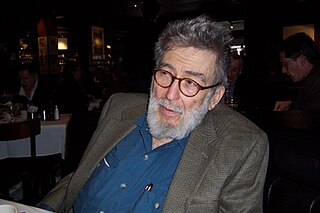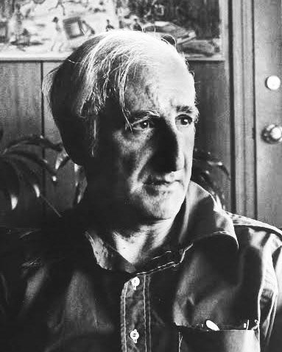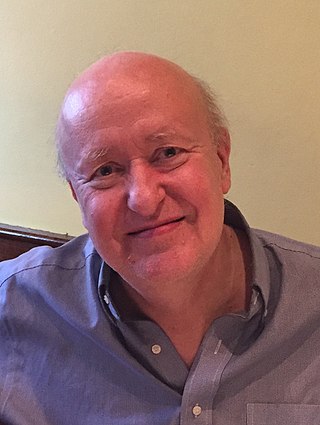Related Research Articles

Music journalism is media criticism and reporting about music topics, including popular music, classical music, and traditional music. Journalists began writing about music in the eighteenth century, providing commentary on what is now regarded as classical music. In the 1960s, music journalism began more prominently covering popular music like rock and pop after the breakthrough of The Beatles. With the rise of the internet in the 2000s, music criticism developed an increasingly large online presence with music bloggers, aspiring music critics, and established critics supplementing print media online. Music journalism today includes reviews of songs, albums and live concerts, profiles of recording artists, and reporting of artist news and music events.

Nathan Irving Hentoff was an American historian, novelist, jazz and country music critic, and syndicated columnist for United Media. Hentoff was a columnist for The Village Voice from 1958 to 2009. Following his departure from The Village Voice, Hentoff became a senior fellow at the Cato Institute and continued writing his music column for The Wall Street Journal, which published his works until his death. He often wrote on First Amendment issues, vigorously defending the freedom of the press.

Ben-hur Haig Bagdikian was an American journalist, news media critic and commentator, and university professor. An Armenian genocide survivor, he moved to the United States as an infant and began a journalism career after serving in World War II. He worked as a local reporter, investigative journalist and foreign correspondent for The Providence Journal. During his time there, Bagdikian won a Peabody Award and a Pulitzer Prize. In 1971, he received parts of the Pentagon Papers from Daniel Ellsberg and successfully persuaded The Washington Post to publish them despite objections and threats from the Richard Nixon administration. He later taught at the University of California, Berkeley Graduate School of Journalism and served as its dean from 1985 to 1988.

David Salzer Broder was an American journalist, writing for The Washington Post for over 40 years. He was also an author, television news show pundit, and university lecturer.

Frank Hart Rich Jr. is an American essayist and liberal op-ed columnist, who held various positions within The New York Times from 1980 to 2011. He has also produced television series and documentaries for HBO.

Tim Page is an American writer, music critic, editor, producer and professor who won the 1997 Pulitzer Prize for his music criticism for The Washington Post. Anthony Tommasini, the chief music critic for The New York Times, has praised Page's criticism for its "extensive knowledge of cultural history, especially literature; the instincts and news sense of a sharp beat reporter; the skills of a good storyteller; infectious inquisitiveness; immunity to dogma; and an always-running pomposity detector." Other notable writings by Page include his biography of the novelist Dawn Powell, which is credited for helping to spark the revival of Powell's work, and a memoir that chronicles growing up with undiagnosed autism spectrum disorder.
No Gun Ri: A Military History of the Korean War Incident is a 2002 book by United States military officer Robert Bateman about the events that took place at No Gun Ri in 1950 and the controversy that followed. Bateman contested the veracity of a Pulitzer prize-winning account published earlier. The book was awarded the 2004 Colby Award for military history.
The Real Paper was a Boston-area alternative weekly newspaper with a circulation in the tens of thousands. It ran from August 2, 1972, to June 18, 1981, often devoting space to counterculture and alternative politics of the early 1970s. The offices were in Cambridge, Massachusetts.

The Boston Evening Transcript was a daily afternoon newspaper in Boston, Massachusetts, published for over a century from July 24, 1830, to April 30, 1941.

Joseph Nocera is an American business journalist and author. He has written for The New York Times since April 2005, writing for the editorial page from 2011 to 2015. He was also an opinion columnist for Bloomberg Opinion. He has co-written the books The Big Fail, A Piece of the Action and All the Devils Are Here.

Joseph Patrick Michael Leydon is an American film critic and historian. A critic and correspondent for Variety since 1990, he is the author of Joe Leydon's Guide to Essential Movies You Must See, and was a contributing critic for Leonard Maltin's Movie Guide. As of July 2021 he has 1225 reviews collected on the website Rotten Tomatoes. He is also a founding member of Houston Film Critics Society, and a voting member of Critics Choice. From 2001 until 2021, Leydon taught film and communication studies courses at Houston Community College and the Jack J. Valenti School of Communication at University of Houston.

Jabari Asim is an American author, poet, playwright, and professor of writing, literature and publishing at Emerson College in Boston, Massachusetts. He is the former editor-in-chief of The Crisis magazine, a journal of politics, ideas and culture published by the NAACP and founded by historian and social activist W. E. B. Du Bois in 1910. In February 2019 he was named Emerson College's inaugural Elma Lewis '43 Distinguished Fellow in the Social Justice Center. In September 2022 he was named Emerson College Distinguished Professor of Multidisciplinary Letters.
Frank Anthony Bruni is an American journalist writing for The New York Times since 1995. Following a wide range of assignments, including a stint as chief restaurant critic, he was named an op-ed columnist in June 2011. Bruni joined Duke University in June 2021 as Professor of the Practice of Journalism and Public Policy in the Sanford School of Public Policy. Since joining Duke, he continues writing a Times newsletter and remains a contributing opinion writer for the newspaper.
Joseph L. Williams was a film critic for the daily St. Louis Post-Dispatch and the Web site STLtoday.com in St. Louis, Missouri. He was also the author of the books Entertainment on the Net, Hollywood Myths and The Grassy Knoll Report. Williams had been a staff writer for the newspaper since 1996. From 2003 to 2006, he was the on-camera movie reviewer for St. Louis TV station KMOV. He was a frequent guest on radio and television broadcasts in the region.
Robert Parris was a composer and professor of music.
Bill Marx is a theater critic based in Boston, Massachusetts. Marx served as theater and arts critic for WBUR from 1982 to 2006 and as the host of a podcast dedicated to books in translation for WGBH (FM) and Public Radio International's The World from 2007 to 2011.
Tim Riley is a music journalist who reviews pop and classical music for NPR, and has written for The New York Times, truthdig, the Huffington Post, the Washington Post, Slate and Salon.

Nicholas Andrew Basbanes is an American author who writes and lectures about authors, books, and book culture. His subjects include the "eternal passion for books" ; the history and future of libraries ; the "willful destruction of books" and the "determined effort to rescue them" ; "the power of the printed word to stir the world" ; the invention of paper and its effect on civilization, and an exploration of Longfellow's life and art.
The Chamber Symphony is a symphony for chamber ensemble by the American composer Ellen Taaffe Zwilich. It was commissioned by the music ensemble Boston Musica Viva, which first performed the work under the direction of Richard Pittman on November 30, 1979. The work is cast in a single movement and has a duration of approximately 17 minutes in performance.
Jeremy Adam Eichler is an American music critic and cultural historian. From 2006 to 2024, he was the chief classical music critic of The Boston Globe, with the "Third Ear" column. He is set to take on a newly created professorship in music history and public humanities at Tufts University.